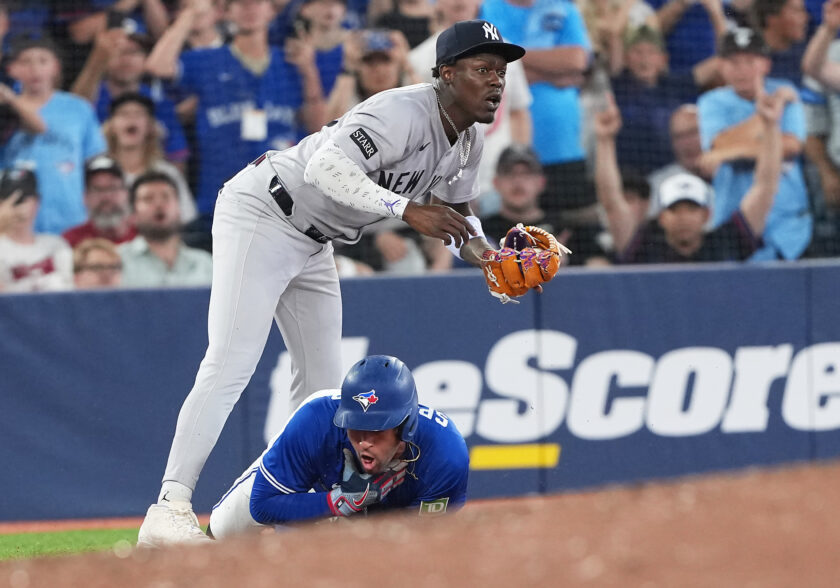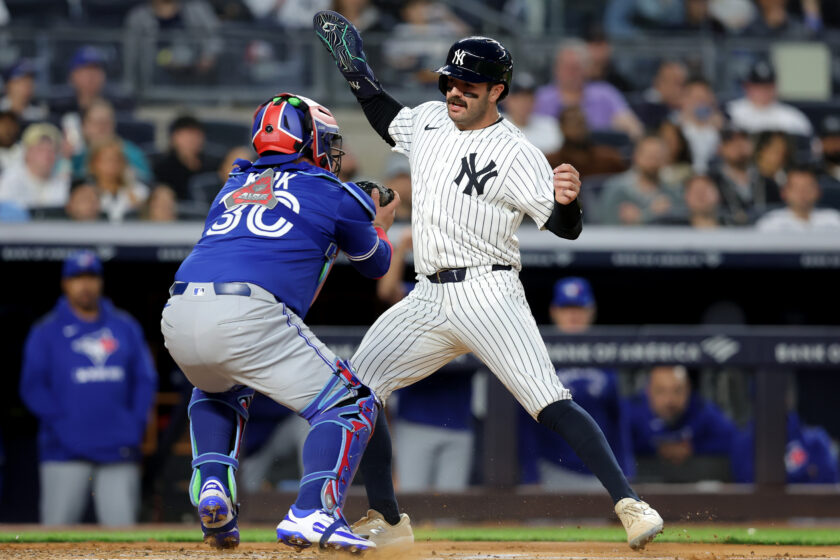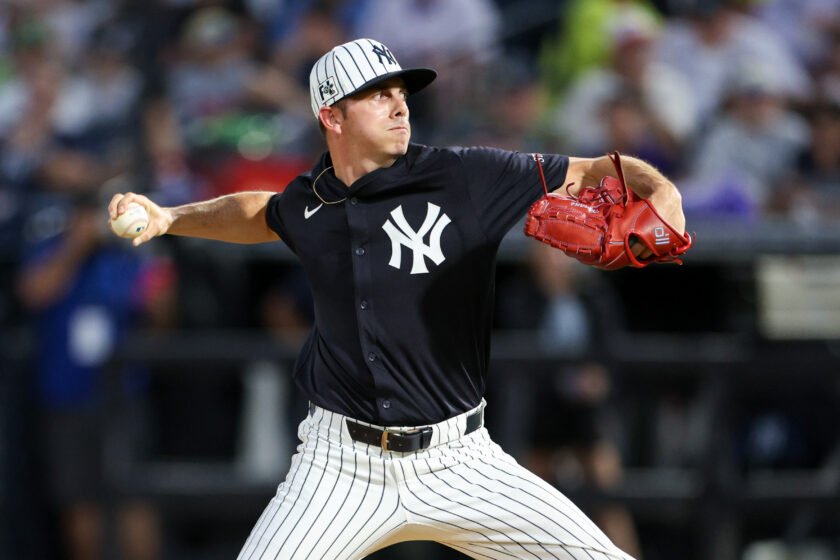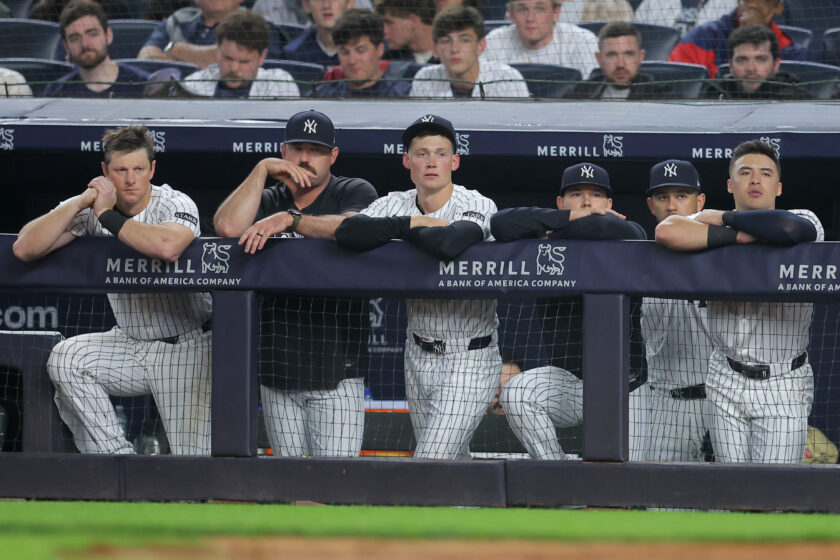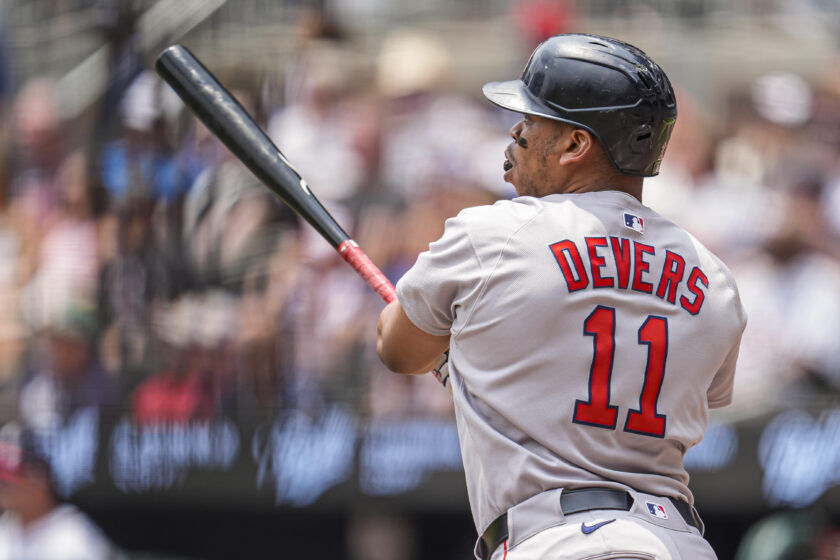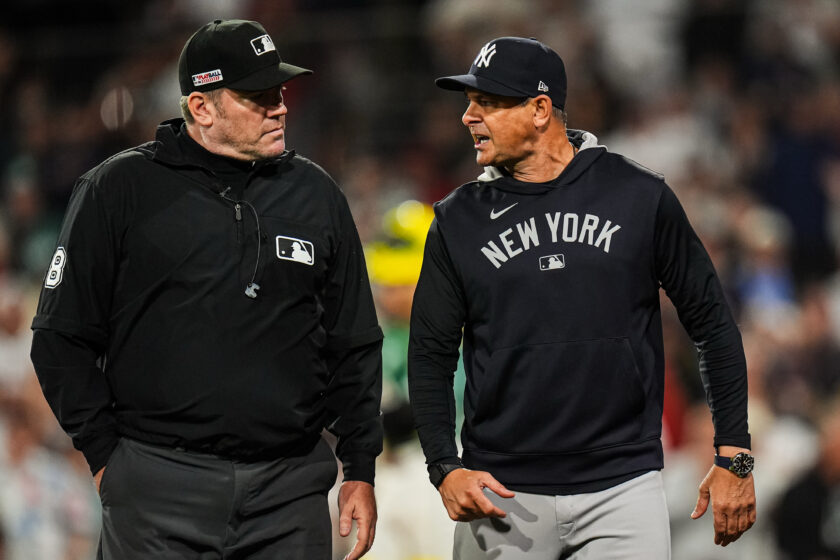The seriously flawed Baseball Hall of Fame voting system
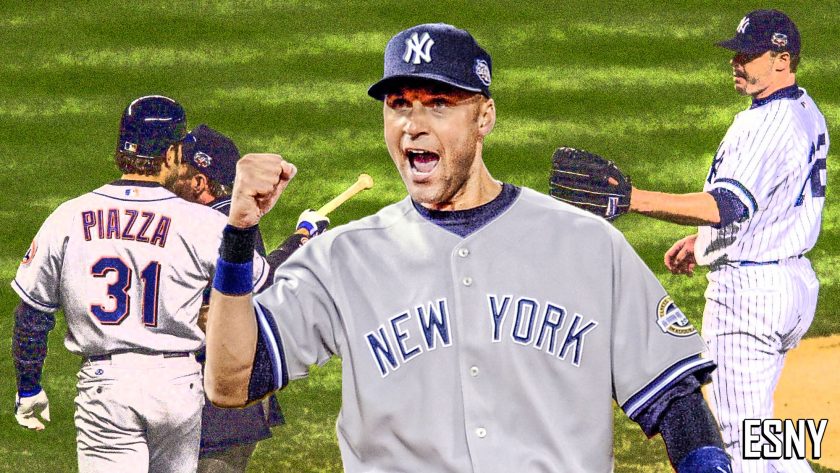
The Baseball Hall of Fame announcement is on Tuesday, but how the voters come to their decisions is flawed and needs to change.
Derek Jeter will headline the class of new Baseball Hall of Fame inductees this year. Who joins him is one of the biggest questions entering Tuesday.
Larry Walker enters his last year on the ballot and is teetering on the edge. Curt Schilling, Barry Bonds and Roger Clemens are the biggest names of several candidates with off-the-field issues that need to be considered.
But more important than the names, the voting process is flawed and how voters seem to think about the Hall of Fame is not the way it should be.
The “First-Ballot” Guys
There’s this notion that first-ballot Hall of Famers are better than other Hall of Famers. That isn’t true and that notion needs to end. Some great players don’t get noticed until a few years after they are on the ballot. Larry Walker is a prime example.
Walker’s career fWAR is five wins below Jeter, who also played in 800 more games. It’s not unreasonable to say Walker was better than Jeter, though I wouldn’t necessarily agree with that.
If Bonds and Clemens get voted into the Hall of Fame, they will be remembered as two of the greatest players who ever lived. They will not be first-ballot Hall of Famers, and that does not matter. Edgar Martinez was voted in on his last year, but David Ortiz may very well get in on his first try.
Is that fair? No. Does it matter? No.
Both are Hall of Famers and when they get voted in isn’t too important. Eddie Matthews wasn’t voted in on the first ballot, and everybody believes he’s a Hall of Famer. If you are a player worthy of being in the Hall of Fame, you should be in and deserve a vote the first time you are on the ballot.
The Unanimous Vote
Mariano Rivera became the first player to ever be voted into the Hall of Fame unanimously in 2019. Mo deserved it, too. He was the greatest closer all of time and it’s not close. Yes, several other players deserved to be unanimous before Mo, but that doesn’t mean he shouldn’t have been unanimous. Since other players weren’t voted in unanimously doesn’t mean we should hold back other players from doing so.
The argument has risen again this year with Jeter. No. 2 deserves to be a unanimous vote. There isn’t anybody who didn’t watch Jeter or look at his numbers and say, “He’s not a Hall of Famer.” That’s ludicrous thinking. Jeter is a without-a-doubt Hall of Famer those guys should be unanimous. (For the record, I think Larry Walker, Scott Rolen and Derek Jeter should all be unanimous players. I also think Adrian Beltre and Ichiro Suzuki should be, as well.)
Voting Restrictions
Voters can only vote for 10 players on a ballot and the players only have 10 years on the ballot. This causes voters to have to make ballot crunches. This is the very reason Fred McGriff isn’t in the Hall of Fame. The ballot has become crowded over the last few years as more players are deserving of consideration. Forcing voters to only pick 10 is not the way it should be. If there’s a limit on the number of years for a player, there shouldn’t be a max number per voter.
A voter should go player by player and vote for all the players he thinks are deserving of the Hall of Fame. You’re either a Hall of Famer or you’re not. Vote for as many players as you feel are deserving to be there. It brings justice to players like Larry Walker, Fred McGriff, Edgar Martinez and several others.
There is no reason to limit the number of players who get the call. The “small hall” notion is out of touch. There are more great players in today’s game than there were before. It’s time to recognize that.
[sc name=”yankees-savages-t-shirt” ]The Character Clause Issue
Part of what the voters vote on is player character. At least, they’re supposed to. If you don’t consider it, that’s fine; just say you don’t consider that specific area. It’s in the voting criteria, though, and writers seem to blatantly ignore character at times. It shouldn’t be included if unused.
Barry Bonds, Roger Clemens, Andruw Jones, Curt Schilling and Manny Ramirez all have legitimate issues that should be considered when voting and it’s tough to vote for those legends due to that character criteria. Are they Hall of Fame-caliber players on the field? Yes, but they all did things that aren’t worthy of recognition. Yes, there are a lot of bad people in Cooperstown; that doesn’t justify putting them in.
Also voting for one of those players but not the other while citing off-the-field reasons is selective outrage. Either vote for all or none of them. Yes, they all should be considered on a case by case basis. All those cases should lead to the same conclusion. Either they are Hall of Famers or they aren’t.
The Writers Themselves
Some writers admit they don’t watch the game as much as once did. The BBWA does have a rule about needing to cover the game for a certain amount of time and had to have covered it in the last 10 years. However, a lot of those guys don’t follow that. They cover a few stories a year and that’s how they meet the requirement. A writer that hasn’t watched baseball seriously within the last five years should not have a vote.
If you value on-the-field production more than anything, the only thing you should be voting on is the numbers—not what your eyes told you, not what the player’s legacy is and not how many obscure individual or team accomplishments the player has. The production of the player is what matters. Ignoring certain new-age metrics is not useful in voting and ignoring old age metrics is also not useful. I think batting average isn’t useful, but it’s something I’d consider if I were a voter. All the stats matter and more information the better.
The Hall of Fame voting process is deeply flawed and it’s time the writers look at themselves in the mirror and realize that they need to change for the process to improve.
My name is Max Greenfield and I am a 22 year old from Northern California. I have some experience working in baseball and am trying to bring that knowledge to ESNY. I'll cover all things baseball here. Follow me on twitter @GreenfieldMax18

